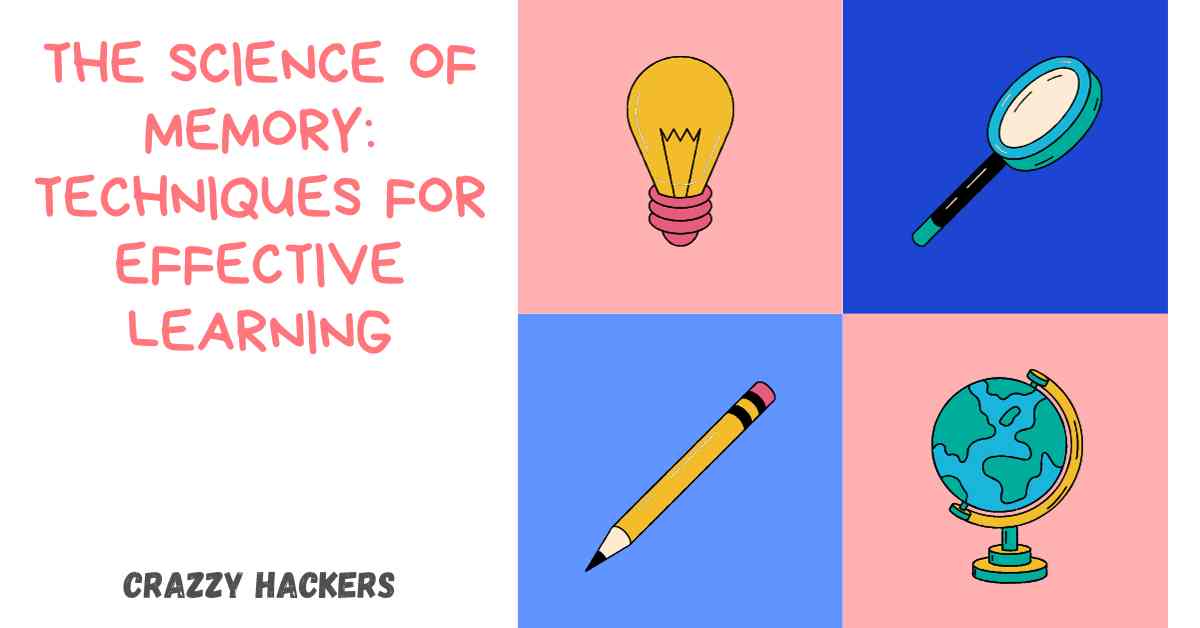I. Introduction to Memory Science
Science of Memory a multifaceted field at the intersection of psychology and neuroscience, explores the enigmatic workings of human memory. It endeavors to decipher the intricate processes that govern how we encode, store, and retrieve information. By unraveling the mysteries of memory, this discipline aims to enhance our understanding of cognition and pave the way for practical applications in various domains, from education to healthcare and beyond.
II. Fundamentals of Memory
At its core, memory comprises a complex network of cognitive functions, encompassing sensory memory, short-term memory, and long-term memory. Sensory memory acts as the initial filter, briefly holding sensory information. Short-term memory, with its limited capacity, retains information temporarily, while long-term memory stores vast amounts of information over extended periods, subject to various encoding and retrieval processes.
III. Memory Encoding Strategies
Memory encoding strategies are pivotal in transforming fleeting perceptions into enduring memories. Techniques like elaborative rehearsal, mnemonic devices, and chunking enable effective encoding by associating new information with existing knowledge frameworks, enhancing retention and recall.
IV. Effective Learning Methods
Effective learning methods encompass diverse strategies tailored to optimize knowledge absorption and retention. Active learning, spaced repetition, and retrieval practice stand as pillars in fostering deeper understanding and long-term memory retention, fostering a more profound grasp of subject matter.
V. Optimizing Study Environments
The study environment plays a crucial role in memory consolidation and retrieval. Factors such as lighting, noise levels, and organization profoundly impact information retention. Creating conducive study environments primes the mind for effective learning and retention.
VI. Memory Improvement Techniques
Numerous memory improvement techniques, including visualization, association, and the method of loci, empower individuals to enhance their memory prowess by leveraging the brain’s innate capacity for spatial and associative cognition.
VII. Overcoming Forgetting
Understanding and combating forgetting involve strategies such as spaced repetition, mnemonic aids, and periodic review, mitigating the decay of memory traces and bolstering retrieval capabilities.
VIII. Memory and Age: Understanding Changes
As individuals age, memory capabilities undergo transformations. Understanding these changes, from episodic memory decline to preservation of semantic memory, aids in adapting strategies to maintain cognitive function and counteract age-related memory decline.
IX. Applications of Memory Techniques
Memory techniques find applications in diverse fields, from education and skill acquisition to professional endeavors. Employing memory-enhancing strategies can elevate learning outcomes and improve performance in various domains.
X. Technology and Memory Enhancement
The fusion of technology and memory enhancement showcases innovative tools like spaced repetition software, memory apps, and neurofeedback, offering promising avenues for augmenting memory and cognitive abilities.
XI. Memory and Mental Health
The intricate link between memory and mental health underscores how memory disturbances often accompany mental health disorders. Understanding this correlation aids in devising therapeutic interventions and support strategies.
XII. Memory Ethics and Enhancement
Exploring the ethical dimensions of memory enhancement delves into debates surrounding cognitive enhancement, privacy concerns in memory manipulation, and equitable access to memory-enhancing technologies, fostering discussions crucial for responsible advancement.
XIII. Conclusion
Memory science stands as a beacon illuminating the intricate workings of the human mind. Its multifaceted exploration, from fundamental mechanisms to practical applications and ethical considerations, heralds a future where a deeper understanding of memory empowers individuals and societies to navigate the complexities of cognition while respecting the ethical boundaries that safeguard our cognitive landscape.





